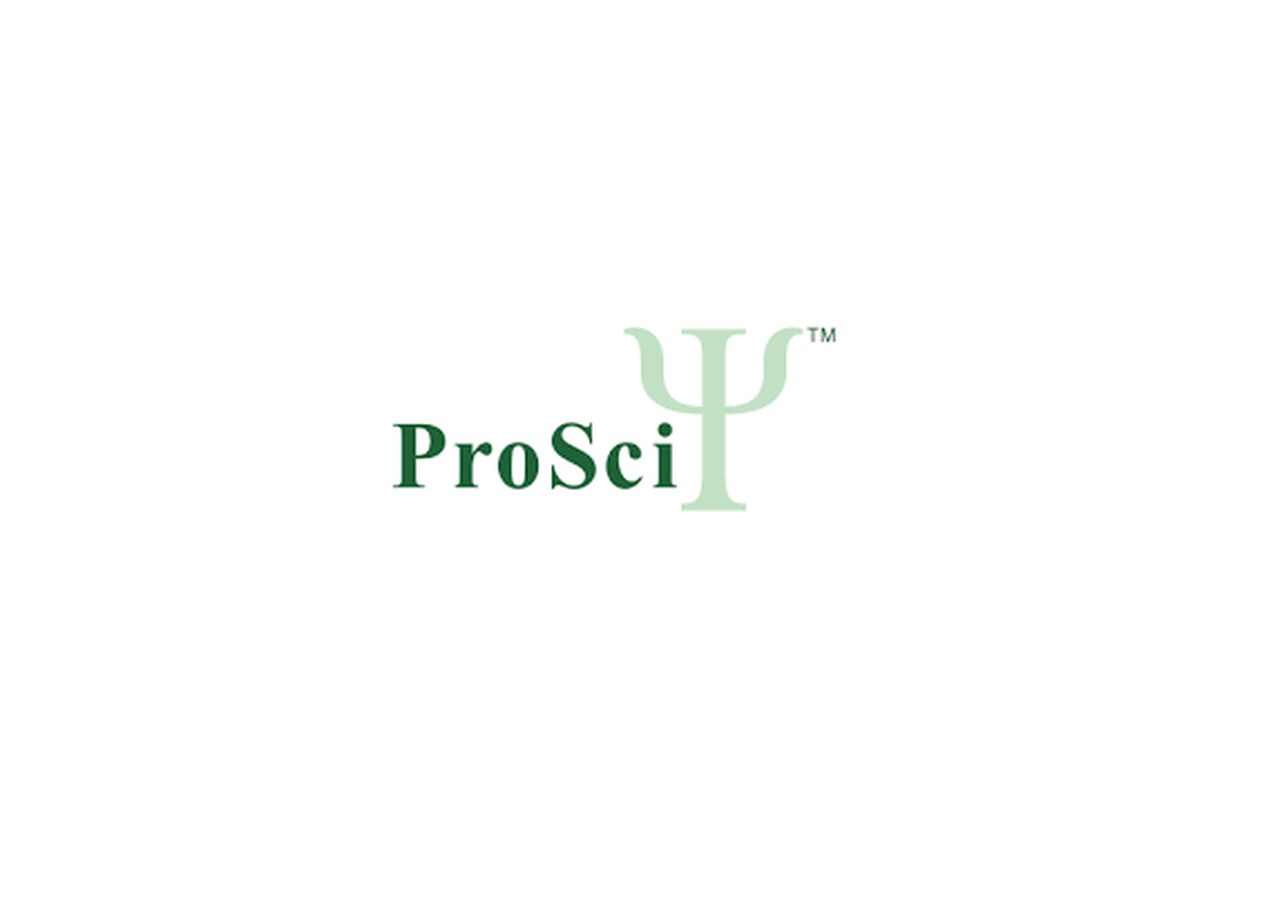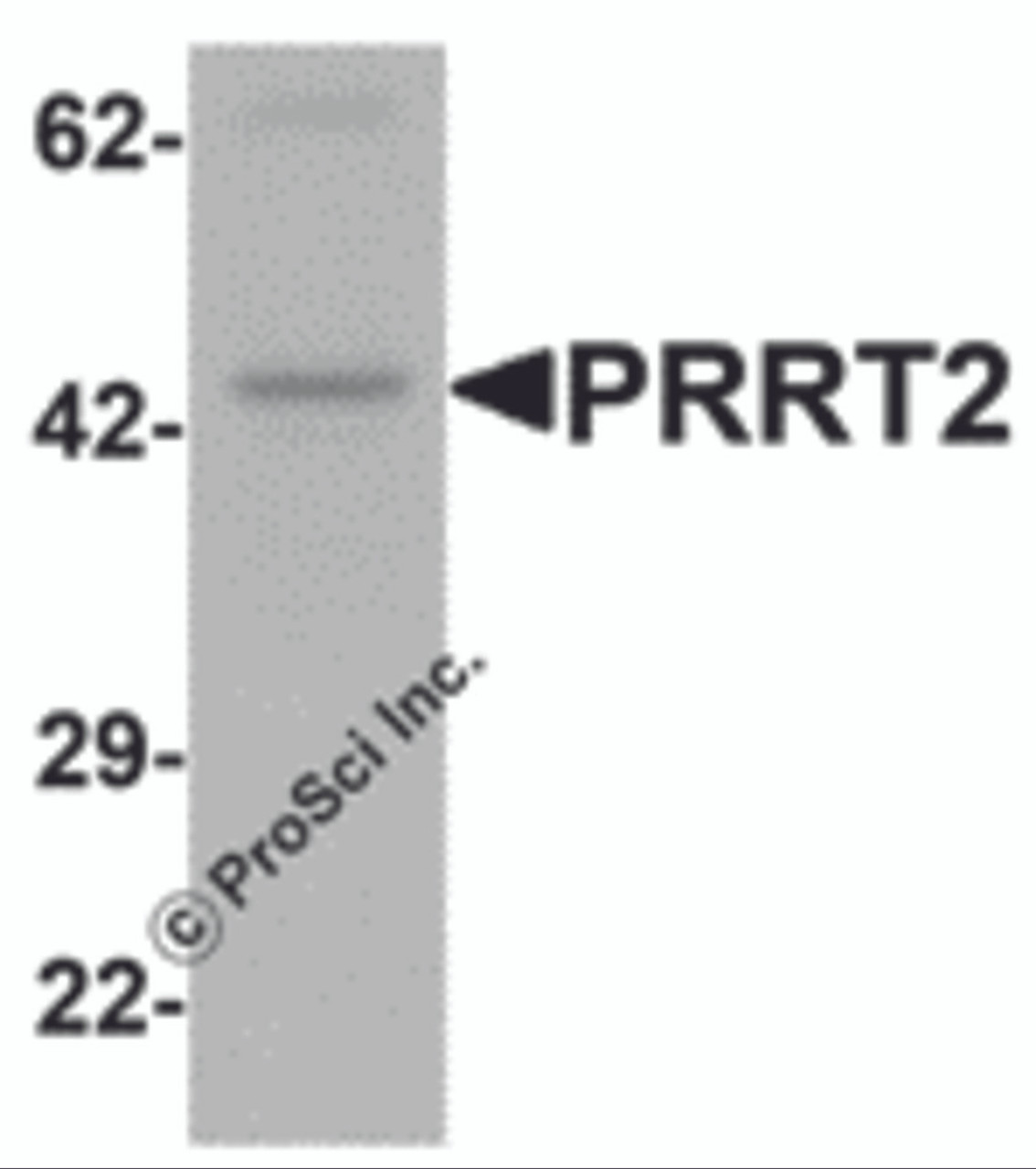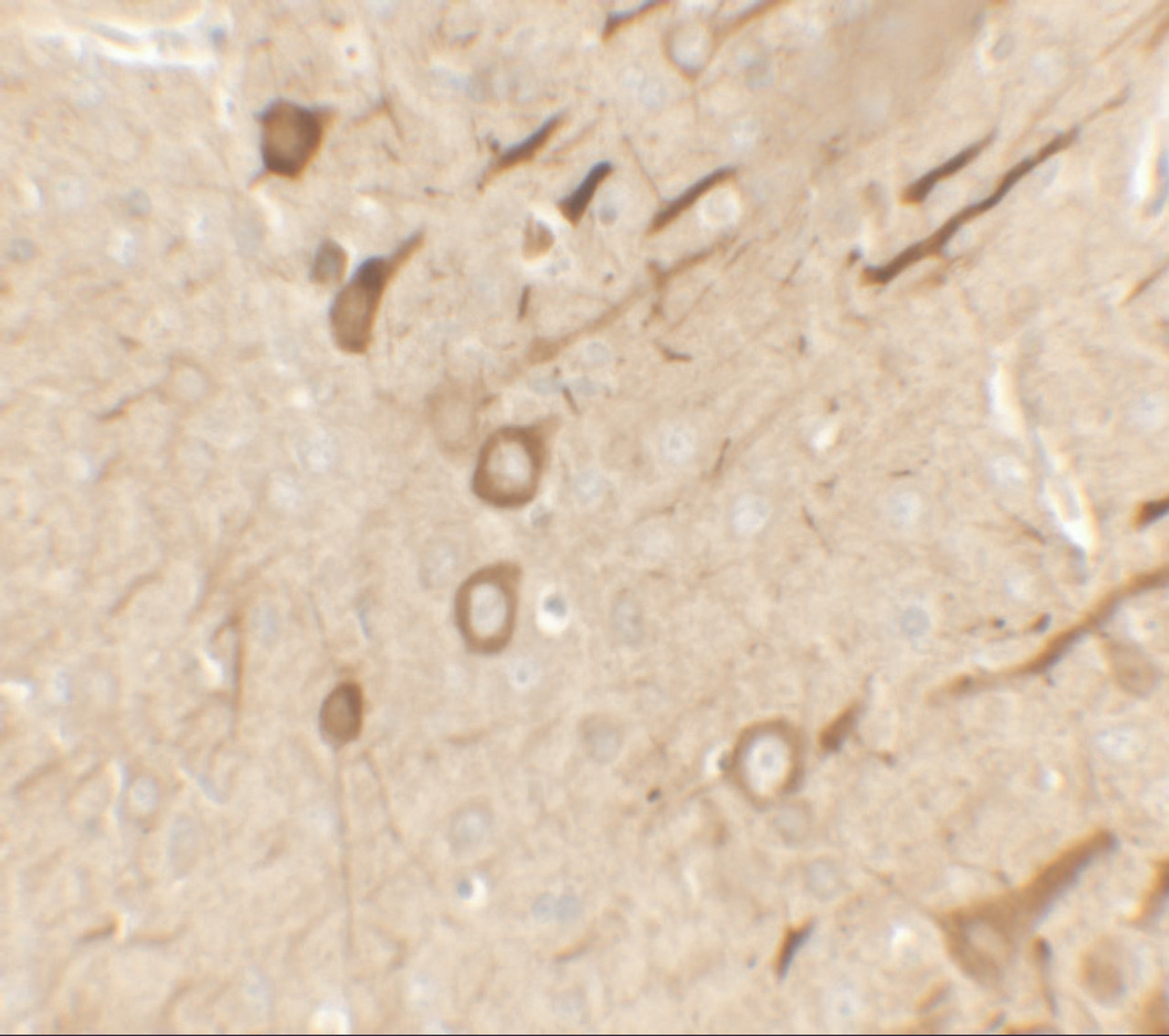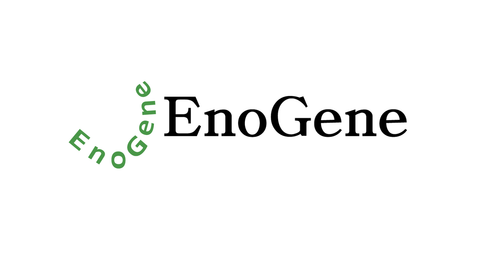Product Description
PRRT2 Antibody | 7295 | ProSci
Host: Rabbit
Reactivity: Human, Mouse, Rat
Homology: N/A
Immunogen: PRRT2 antibody was raised against a 18 amino acid peptide near the center of human PRRT2 .
The immunogen is located within amino acids 180 - 230 of PRRT2.
Research Area: Stem Cell
Tested Application: E, WB, IHC-P, IF
Application: PRRT2 Antibody can be used for detection of PRRT2 by Western blot at 1 μg/mL.
Antibody validated: Western Blot in mouse samples; Immunohistochemistry in rat samples and Immunofluorescence in rat samples. All other applications and species not yet tested.
Specificiy: Multiple isoforms of PRRT2 are known to exist.
Positive Control 1: Cat. No. 1403 - Mouse Brain Tissue Lysate
Positive Control 2: N/A
Positive Control 3: N/A
Positive Control 4: N/A
Positive Control 5: N/A
Positive Control 6: N/A
Molecular Weight: Predicted: 43 kDa
Observed: 44 kDa
Validation: N/A
Isoform: N/A
Purification: PRRT2 Antibody is affinity chromatography purified via peptide column.
Clonality: Polyclonal
Clone: N/A
Isotype: IgG
Conjugate: Unconjugated
Physical State: Liquid
Buffer: PRRT2 Antibody is supplied in PBS containing 0.02% sodium azide.
Concentration: 1 mg/mL
Storage Condition: PRRT2 antibody can be stored at 4˚C for three months and -20˚C, stable for up to one year.
Alternate Name: PRRT2 Antibody: PKC, EKD1, ICCA, BFIC2, BFIS2, DSPB3, DYT10, FICCA, IFITMD1, Proline-rich transmembrane protein 2, Dispanin subfamily B member 3
User Note: Optimal dilutions for each application to be determined by the researcher.
BACKGROUND: PRRT2 Antibody: The proline-rich transmembrane protein 2 (PRRT2) contains a proline-rich domain in its N-terminal half and is predominantly expressed in brain and spinal cord in embryonic and postnatal stages. While little is known of the function of this protein, mutations in PRRT2 have been shown to be the causative gene of paroxysmal kinesigenic dyskinesia, which is characterized by recurrent, brief attacks of abnormal involuntary movements induced by sudden voluntary movements. Recent studies have shown that PRRT2 may also be involved in some forms of benign familial infantile epilepsy (BFIE) , an autosomal dominant epilepsy syndrome.
 Euro
Euro
 USD
USD
 British Pound
British Pound
 NULL
NULL










![PRRT2 Antibody (Center) [APR31562G] PRRT2 Antibody (Center) [APR31562G]](https://cdn11.bigcommerce.com/s-452hpg8iuh/images/stencil/500x659/products/871807/1163874/logo__92149.1659788186__52553.1659868214.png?c=2)

